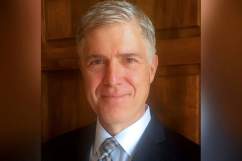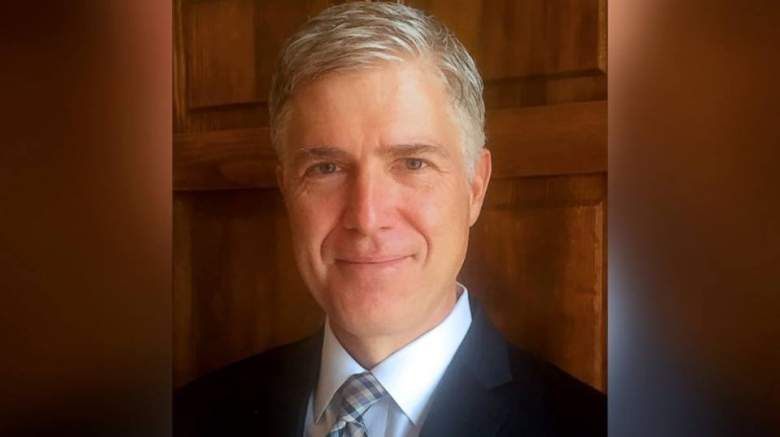
Neil Gorsuch. (Facebook)
Some of Neil Gorsuch’s most developed views are in the area of religious freedom, and his decisions on the Hobby Lobby and the Little Sisters of the Poor cases.
He generally takes the side of religious organizations or people seeking to exercise their faith without intrusion from government. In two key cases, Gorsuch sided with Christians who “argued for an exemption from the contraception mandate in President Obama’s signature health care legislation, the Affordable Care Act, due to religious beliefs,” wrote ABC News.
Gorsuch, 49, an appellate judge from Denver known for his eloquent writings, was chosen by Donald Trump on January 31 for a seat on the U.S. Supreme Court.
Trump announced his nominee at 8 p.m. on January 31.
Gorsuch’s views on religious freedom are likely to get great scrutiny. Unlike other contentious issues – such as abortion – he has a record on religious freedom questions.
Here’s what you need to know:
1. Gorsuch Sided With Religious People & Corporations That Didn’t Want to Dispense Contraceptives Under Obamacare
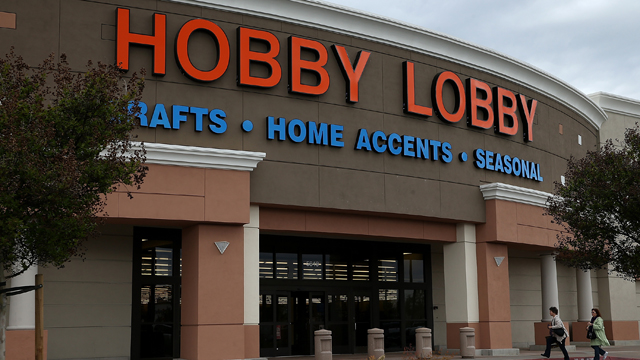
(Getty)
According to The Denver Post, “Gorsuch is best known nationally for taking the side of religious organizations that opposed parts of the Affordable Care Act that compelled coverage of contraceptives.”
The most famous case involved the Hobby Lobby stores. The Denver Post reported that Gorsuch wrote in Burwell vs. Hobby Lobby Stores “of the need for U.S. courts to give broad latitude to religious beliefs.”
The plaintiffs in the case were David and Barbara Green and their children, the owners of the Hobby Lobby store chain, which has 500 stores and 13,000 full-time employees, and a company called Mardel, which sells Christian books. The majority decision reads that the Greens “organized their businesses with express religious principles in mind.”
Under the Affordable Care Act (Obamacare), employment-based group health plans must provide certain types of contraceptives.
The Greens opposed providing coverage for FDA-approved contraceptives that prevent implantation of a fertilized egg, the decision says. The plaintiffs argued they faced fines of $1.3 million a day if they did not comply. In 2012, they sued under the Free Exercise Clause of the First Amendment and the Religious Freedom Restoration Act.
According to SCOTUS Blog, Gorsuch “stressed the need to accept these parties’ own conceptions regarding the requirements of their faith, and held (among other things) that they were likely to prevail on claims that the contraception mandate in the Affordable Care Act substantially burdened their religious exercise in violation of RFRA.”
2. In the Hobby Lobby Case, Gorsuch Wrote That ‘Secular Courts’ Should Not Interfere in Someone’s Religious Faith
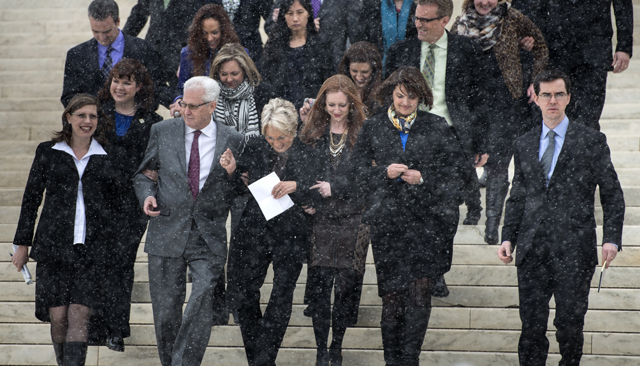
(Getty)
You can read Gorsuch’s concurring opinion in the Hobby Lobby case here.
Gorsuch was in the 5-3 majority that sided with Hobby Lobby (the U.S. Supreme Court later largely agreed with that majority).
The court found that Hobby Lobby and Mardel were “persons exercising religion” for the purposes of the RFRA, which says that “government shall not substantially burden a person’s exercise of religion.” The government argued that for-profit corporations should not have the protections of non-profit religious organizations.
Gorsuch wrote in his concurrence, “No doubt, the Greens’ religious convictions are contestable. Some may even find the Greens’ beliefs offensive. But no one disputes that they are sincerely held religious beliefs. This isn’t the case, say, of a wily businessman seeking to use an insincere claim of faith as cover to avoid a financially burdensome regulation.”
He continued that the Religious Freedom Restoration Act, “doesn’t just apply to protect popular religious beliefs: it does perhaps its most important work in protecting unpopular religious beliefs, vindicating this nation’s long-held aspiration to serve as a refuge of religious tolerance.”
He raised the case of an Amish employer who refused to pay social security taxes.
“It is not for secular courts to rewrite the religious complaint of a faithful adherent, or to decide whether a religious teaching about complicity imposes ‘too much’ moral disapproval on those only ‘indirectly’ assisting wrongful conduct. Whether an act of complicity is or isn’t ‘too attenuated’ from the underlying wrong is sometimes itself a matter of faith we must respect.”
3. Gorsuch Sided With the Little Sisters of the Poor in Another Religious Freedom Case Involving Obamacare
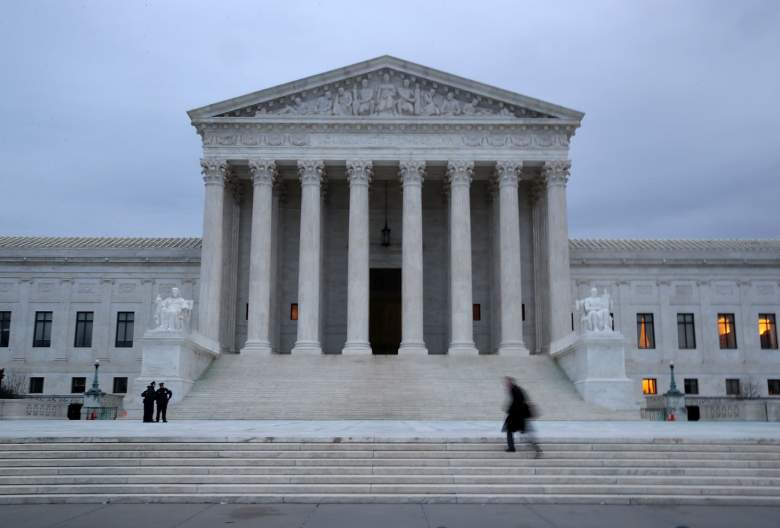
The U.S. Supreme Court. (Getty)
After Hobby Lobby, Gorsuch was involved in another high-profile religious freedom case, this one involving the Little Sisters of the Poor.
According to SCOTUS blog, in the Little Sisters of the Poor case, “Gorsuch joined a group of 10th Circuit judges who dissented from denial of rehearing…when a panel of the court of appeals ruled against the Little Sisters on their RFRA claims about the same ACA mandate.”
The blog reports that Gorsuch argued that “the 10th Circuit had shown insufficient deference to the Little Sisters’ own articulation of the tenets of their religious beliefs.”
4. Gorsuch Has Championed the Rights of Religious Groups to Display Their Religion in Public Places
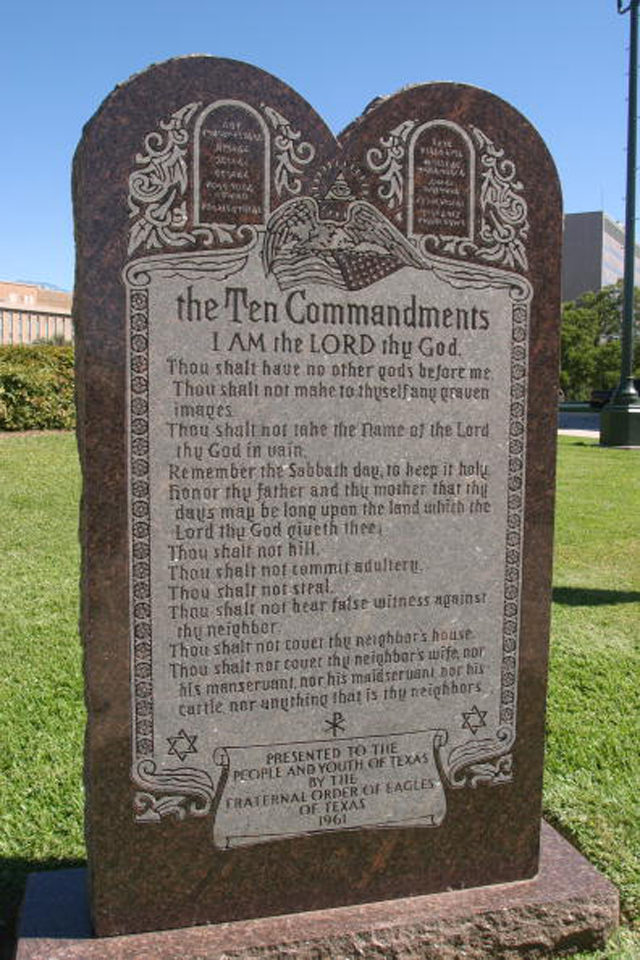
(Getty Images)
In Summum v. Pleasant Grove City, Gorsuch dissented from a decision not to grant a rehearing of a case in which the court limited the government from displaying a donated Ten Commandments monument in a park.
In two other religious freedom cases, American Atheists Inc. v. Davenport and Green v. Haskell County Boad. of Commissioners, Gorsuch also seemed inclined to side with government being able to allow public displays of religious expression, noted SCOTUS blog.
According to ABC News, Gorsuch is “is a defender of the ‘Free Exercise Clause,’ which says Congress shall make no law respecting an establishment of religion, or prohibiting the free exercise thereof.”
5. Gorsuch’s Positions on Other Issues, Like Abortion, Are Less Well Known
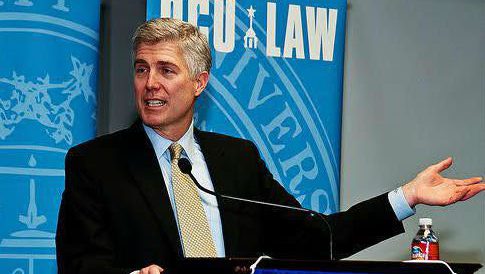
Supreme Court candiate Neil Gorsuch speaks at an event. He is a front runner for the vacant seat left by Justice Antonin Scalia. (Twitter)
Although Gorsuch has a developed history on religious freedom cases, his positions on other issues, like abortion, are not clear.
According to CNN, Gorsuch has never written an opinion on Roe v. Wade. However, he has made it clear that he doesn’t like seeing the courts used to decide social policy.
In a 2005 National Review article, Gorsuch wrote that he agreed with Washington Post columnist David von Drehle that liberals rely on the courts too much to make social policy.
Two buzzwords often used to describe former Justice Antonin Scalia – and Gorsuch – are the words “originalist” and “textualist.”
As The Washington Post explains them, “Like Scalia, Gorsuch is a proponent of originalism — meaning that judges should attempt to interpret the words of the Constitution as they were understood at the time they were written — and a textualist who considers only the words of the law being reviewed, not legislators’ intent or the consequences of the decision.”
You can read more about Gorsuch and abortion here:
